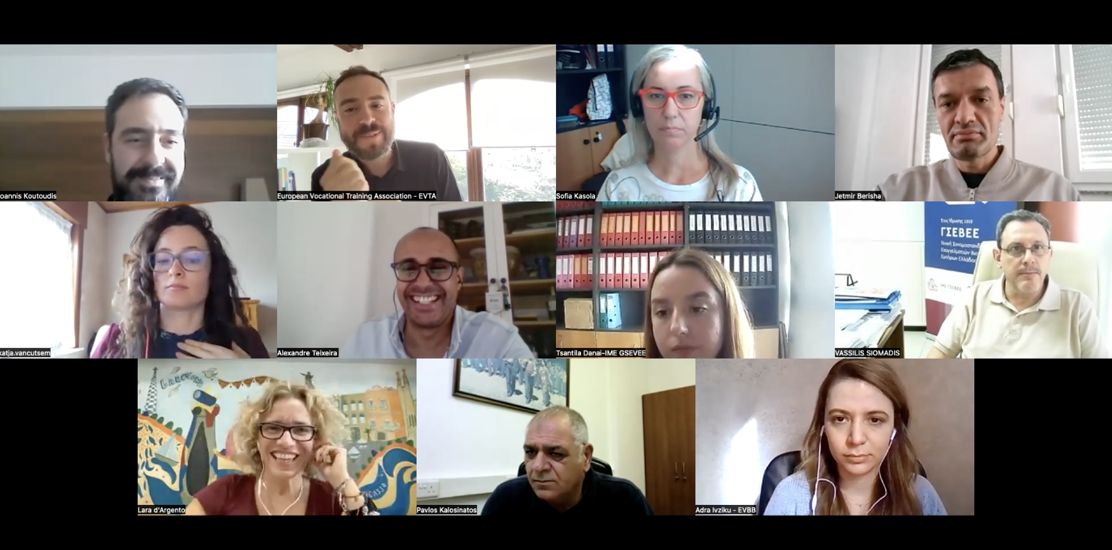“Develop National Networks of Adult Education Providers in the field of Entrepreneurship”
European Vocational Training Association (EVTA)
On Monday 10 October, the European Vocational Training Association (EVTA) organised a Transnational Focus Group online with the aim of presenting ENTRnet project, “Adult Learning Needs Analysis – Survey Report” made by Odisee School as a result of WP3 Task: Promoting networking among adult education providers in Entrepreneurship of the Erasmus+ Project “Develop National Networks of Adult Education Providers in the field of Entrepreneurship” – ENTRnet” Key Action 3 – Support for policy reform, Social Inclusion and Common Values, EACEA/34/2019.
A discussion followed exchanging perspectives and getting feedback from the experts on the outcomes of the needs analysis accomplished by the ENTRnet initiative among European adult learners and training providers. Entrepreneurship through EntreComp Framework as a key concept of ENTRnet project was in the middle of the debate.
First presentation made by EVTA, was on ENTRnet project and EntreComp Framework where key aspects of the project, the partnership, activities, and objectives were showed to participants. Afterwards, the floor was opened to the participants to answer on the question “how familiar you are with EntreComp Framework”. A few participants did know the concept, others never heard of it before, or had heard but only as a concept with no knowledge on the core idea and details.
Odisee School who is directly involved to ENTRnet project presented the results of the survey with key findings:
- Students were less positive about the curriculum than the teachers
- Working with others, learning through experience, and planning and management are the entrepreneurial skills taught the most in the curriculum
- Work placement or internships, physical courses, workshops with entrepreneurs are the most favourable forms of acquiring entrepreneurial skills among students
- Spotting opportunities is the most popular topic for entrepreneurial practice among students and teachers
The discussion then focused on the results of the survey with participants sharing experiences from their regions and countries. Key findings from this discussion can be summarised as:
Some of the results are quite similar in Portugal where they work entrepreneurial competences with national incubators who cross local, regional, national and European funds and deliver the results to the students. Local networks such as national employment services, social security services are involved in the trainings provided to boost entrepreneurial competences for people who face economic difficulties.
In Kosovo, although they are not familiar with EntreComp Framework, they are open to learn more and use it as a tool to increase entrepreneurial skills among adult learners together with short courses they plan to provide in the framework of their projects they currently run.
In Greece, students strongly prefer “learning by doing”, in person touch and contact with experienced entrepreneurs who will share their knowledge with them.
In Puglia, Italy there is a “project work oriented” approach and “learning by doing” is also very preferable.
Questions are being raised about the European digital transition that we now live and the strong preference of students in some European countries to still learn in physical presence than online learning. In countries like Greece, Romania, Belgium, or Italy students still prefer to learn in “a learning by doing” way with courses on campus but in Belgium online courses are also quite high in the ranking. Therefore, the hybrid mode and the flexibility are options that raise faster than other countries and the option of having online courses as a second choice is quite high.
Educational systems should go hand by hand with enterprises and companies to learn from each other and build stronger marketplaces in terms of adjustability and durability.











